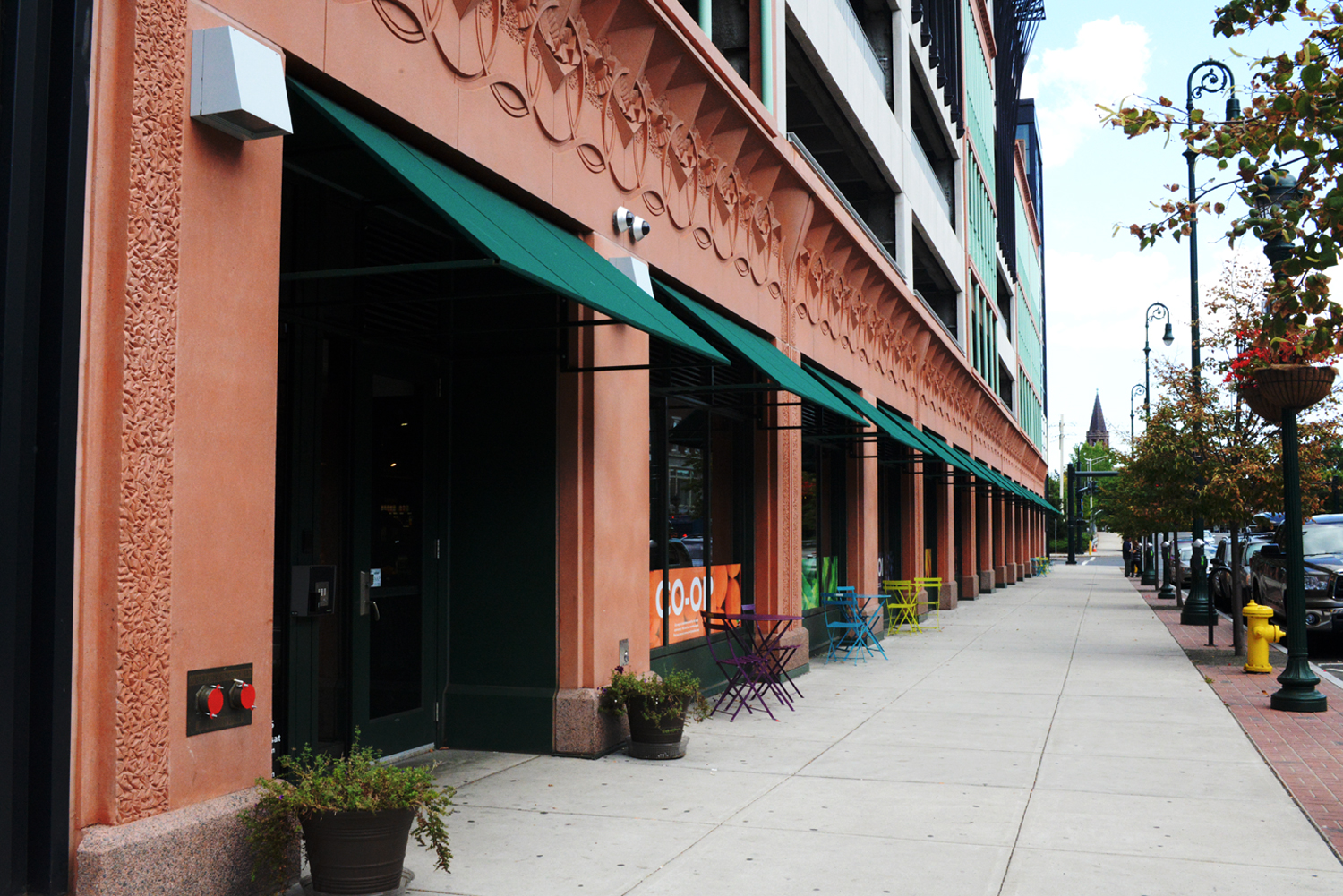Elm City Market, the downtown grocery store that has recently found itself in treacherous financial waters, is under new ownership.
The store was auctioned off to Elm City Community Market, Inc., a new company formed specifically to take over the store, on Wednesday. As a result of the switch, Elm City will no longer be run as a co-op. Customers will no longer share equity in the store and will also lose influence in the grocery’s food decisions, but the market instead will become an employee-owned grocery.
Webster Bank, which provided Elm City Market with its initial loan in 2011, sent over 300 notices to potential bidders before selecting the Elm City Community Market company. The market’s new managers said they hope to maintain the market’s current mission of providing local, organic foods to the surrounding neighborhood. [media-credit name=”Brianna Loo” align=”alignnone” width=”1500″]
[media-credit name=”Brianna Loo” align=”alignnone” width=”1500″]
Elm City Market is one of few grocery stores in New Haven, which has a relatively small number of grocers for a city of its population. Given both this and the market’s proximity to campus, many Yale students — particularly those living off campus — described it as a critical institution for the city.
“It has a wide variety of healthy food options, and their stuff is usually higher quality than most other places in the area,” said Rebecca Levinsky ’15, a former production and design editor at the News. “My roommate and I shop there about once a week.”
Of 15 Yale students interviewed, 10 said they used the Elm City Market to buy groceries and 12 said they believed that New Haven had a shortage of grocery stores.
Since its start in November 2011, the co-op attracted 2,2000 members, who shared equity in the grocery store.
But despite its popularity, the market has found itself in financial troubles. Last May, the market went into default, facing over $500,000 in rent debt to its landlord. On Aug. 5, the market also defaulted on a $3.6 million loan from Webster Bank. These debts led to last week’s auction, during which Elm City Community Market, Inc. was the sole bidder. The company was formed with the help of, along with a long-term low-interest loan from, the New Haven Investment Fund LLC, which is owned by local philanthropist L. Linfield Simon. The market’s debt will not be passed onto its new owners.
On Oct. 1, Webster Bank issued a press release expressing confidence that the market would continue to play a crucial role in the community.
“We believe it is important to provide healthy food alternatives in the community and have worked with all parties so that [the Elm City Market] can continue to serve the downtown, Ninth Square and Wooster Square neighborhoods,” the statement said. “We believe the market will continue to serve as an important community asset that will not only survive but thrive.”
According to Tony Evans, one of the company’s three newly appointed board members, the company will continue to buy produce and hire employees locally. Tony said that he and his fellow owners hope to find ways to encourage old co-op members to continue frequenting the store.
However, New Haven resident and Yale French Professor Ruth Koizim — a co-op member who shops there daily — said that she was deeply upset by the change.
“A co-op is committed to and responsive to its members who live and work in our city,” she said. “A ‘regular’ grocery store, even one that is employee-owned, does not share this ethos. The closing of the Elm City Food Co-op is a great loss to me personally and to the community as a whole.”
Evans said that he thought the most crucial element of the transition would be maintaining the status of the employees who were working at the market prior to the take-over.
“It would have been very difficult for many of those folks if they were to be laid off,” Evans said.
Doug Benson, the market’s current manager, reinforced that none of the market’s workers will be laid off.
The market will stay open over the course of the ownership transition.







